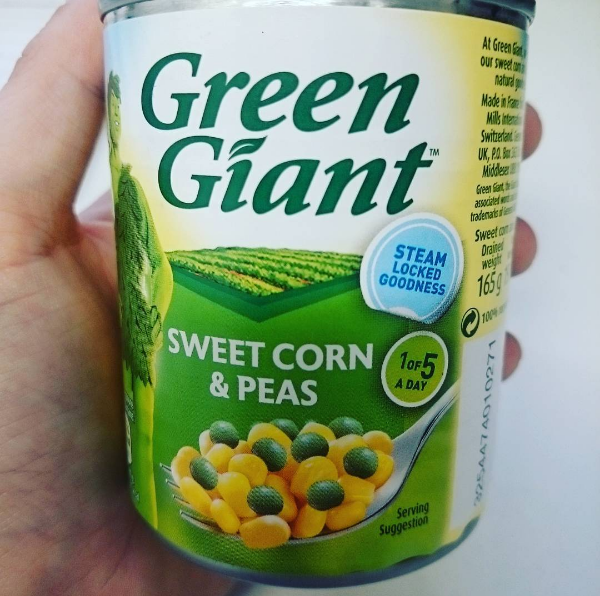As college students, we are very familiar with canned goods.
They’re fast, cheap and easy to make. I mean, you only need a can opener and a pan to heat the contents on and BOOM you have food. What’s not to love?

GIf courtesy of www.pqs.pe
According to a recent study, however, there is quite a bit not to love.
The Problem
The first issue with canned goods is that they’re made with a harmful chemical, known as Bisphenol A, or BPA.
Since the 1960s, BPA has been used in canned goods as a way to shield the food from direct contact with the can. Makes sense, right? Right, but here’s the catch.
Because BPA is added to the lining of the metal can, that means that some of the BPA sneaks into the food itself. And where does it go after that? Yeah, you guessed it, to our bellies.
According to experts, when humans ingest BPA, things like hormonal changes, brain and behavior alterations, fetal prostate gland issues, as well as a risk for cancer can occur.

Photo courtesy of @myhealth9182 on Youtube.Com
Specifically, scientists think that BPA could cause an imbalance of estrogen in our systems, causing some unwanted changes.
For example, when women’s estrogen levels plummet, they’re put at risk for osteoporosis, heart disease and stroke.
For men, higher estrogen levels could mean obesity, heart disease and stroke as well.
While scientists aren’t sure to what degree estrogen levels are changed by BPA, it is something to keep in mind.
Avoiding all canned goods may not seem feasible for a college student, but there is some hope for those who use canned goods in their kitchen.

Photo courtesy of @bumblebee02 on Instagram
The Culprits
A recent study found that BPA levels are higher in canned pastas and soups compared to canned vegetables and fruits.
The data revealed that soups had a 229 percent higher concentration of BPA compared to eating zero canned goods. However, chairman of the North American Metal Packaging Alliance stated that the BPA levels in food are “well below a ‘part per million.’” Still, 229 percent is a significant number.

Photo by Alixandra Rutnik
The reason why soup had the highest concentration of BPAs is because of the heating process it requires once it’s out of the can, according to post-doctoral researcher at Stanford University, Jennifer Hartle.
Hartle said that when soup goes from a solid to a liquid, it takes more BPA with it.
Compared to sodas and ready-to-consume beverages, BPA’s concentration is significantly lower than for canned soups.

Photo courtesy of @renatesolberg on Instagram
The second runner-up in the study was pasta. Pasta had a 71 percent higher concentration of BPA compared to non-canned goods. Does this mean no more Spaghetti-O’s? Nah. You can still enjoy these homemade ones.
And lastly, canned fruits and vegetables only increased BPA concentration by 41 percent. If you’re still all about those canned peas and corn, don’t worry, it’s okay. But believe us when you taste the difference between canned and fresh corn in this recipe.
While this study certainly showed that BPA concentrations are not consistent among all canned items, it also revealed that there are some foods you should buy boxed or fresh rather than canned. In the meantime, scientists are still doing research to find out if there is a definitive adverse effect on health.
For now, you can do your body a favor by toning it down on the canned soups and pastas.
After all, it is summer, and who wants hot soup when it’s scorching outside? Yikes.

GIF courtesy of tottums.com
#SpoonTip: This article was based on the following CNN article and used the same sources as CNN.


